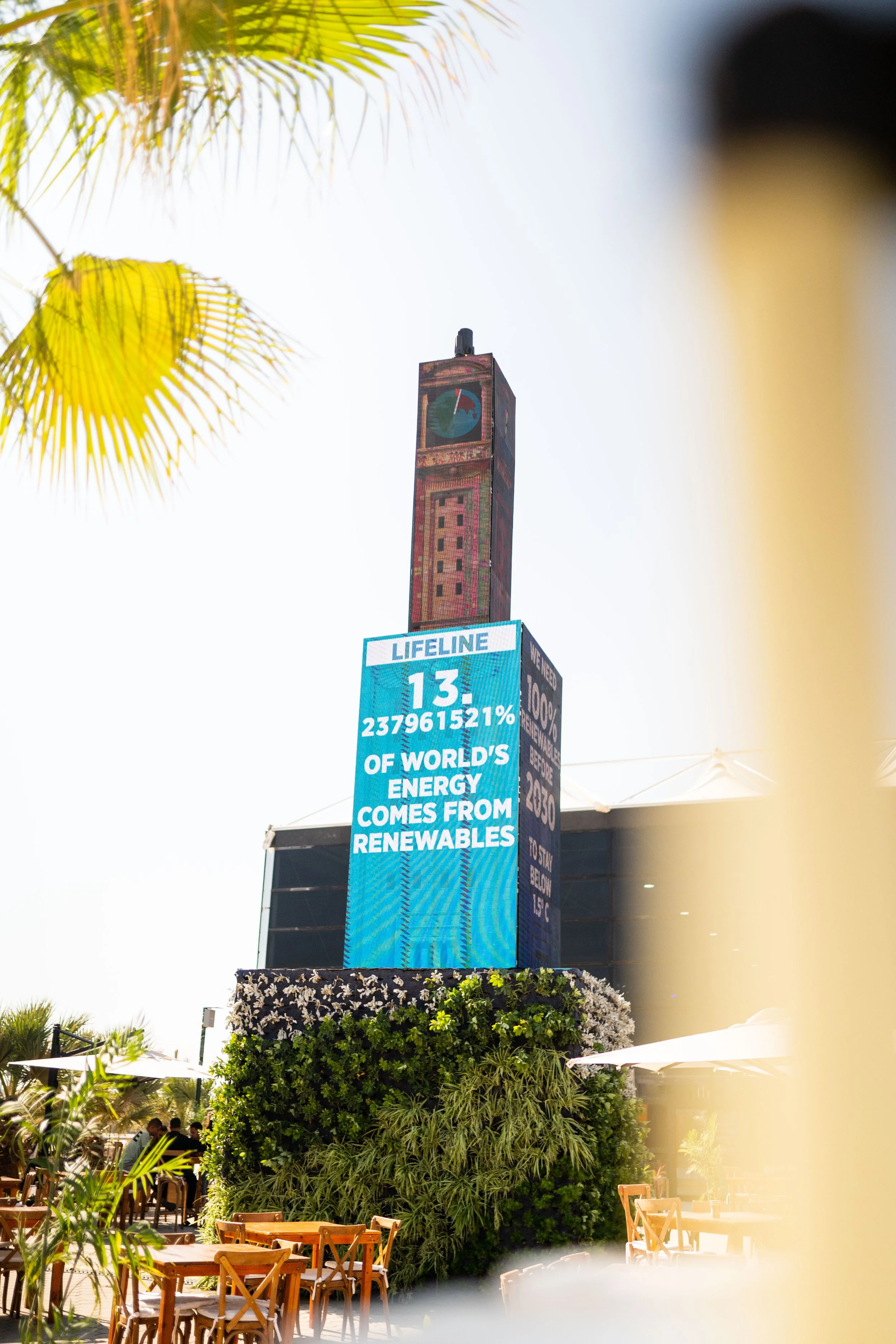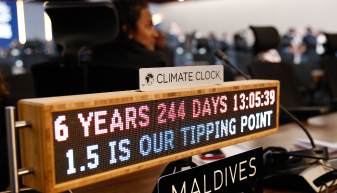Our Timeline
The science is clear: we are in a Climate Emergency
The Science
Decades of increasing carbon emissions are harming the natural and societal systems upon which humanity depends, threatening devastation if we do not act in time. The good news: there is still time.
Backed by the latest science, the Climate Clock tells us what we must do, by when. The Deadline and Lifelines on the Climate Clock make clear the speed and scope of action that political leaders must take in order to limit the worst climate impacts.
One Deadline
Many Solutions – Our Lifelines
The clock’s Lifelines track our progress on several key solutions to the climate crisis. Each lifeline is essential for avoiding climate breakdown and achieving a just and livable world.
Carbon budget for 1.5°C
The clock’s deadline highlights the time remaining to prevent global warming rising above 1.5°C.
-
The Climate Clock’s Loss and Damage Lifeline tracks the climate debt (in $US) that wealthy, high-emitting G20 countries owe for the devastating impacts their excessive carbon emissions have caused to others, especially those in "developing" countries.
-
The Renewable Energy lifeline on the clock shows the percent of global energy coming from renewable sources – wind, water, solar, and bioenergy. It currently stands at 13.5% and is rising extremely slowly.
-
Indigenous communities are critical stewards of the planet’s natural carbon sequestration capacity, which must be protected in order to prevent the worst impacts of climate change.
-
The Green Climate Fund is a finance mechanism set up by the UNFCCC to support critical climate mitigation and adaptation projects in developing countries. At a current confirmed total of $9.52 billion pledged, the Green Climate Fund is woefully underfunded from the goal of $100 billion/year pledged by developed countries by 2020.
-
Currently (according to the IPU), the percentage of women represented in all national parliaments is 26.5%. Women's movements and climate movements the world over aim to raise that to 50%. The demand to achieve gender parity remains a key cross-cutting factor in all negotiations and agreements to combat the adverse effects of climate change.
-
Divestment from fossil fuels is crucial to combat climate change by bringing economic pressure on Big Oil & Gas and encouraging investors to align with a just transition to renewable energy.











